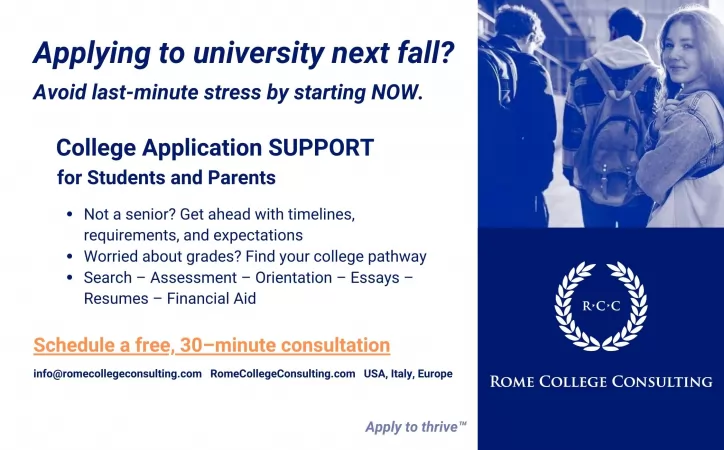Interview with Sabrina Alfonsi on Rome's rubbish crisis
Rome's environment councillor, Sabrina Alfonsi, says city looks worse than it is in reality.
Sabrina Alfonsi, Rome's councillor with responsibility for the environment, responds to Wanted in Rome’s questions about the capital’s rubbish crisis.
She talks about her big waste management plans, Italy’s National Recovery and Resilience Plan (PNRR) and the city's refuse collection agency AMA Roma as well as the 2025 Jubilee and the importance of more civic responsibility.
Alfonsi has been leading the response by the centre-left mayor Roberto Gualtieri to the city’s rubbish troubles since 2021.
Over the past year, the new administration under mayor Roberto Gualtieri claims to have taken steps to control the waste problem, but perception amongst many Romans is that the city is still dirty and not enough has changed, why?
It is very difficult to change people's opinion on an issue when the prevailing collective feeling is resignation. It is clear that one year is not enough to change everything we inherited from the previous administration. Compared to the starting point, there have certainly been some improvements in waste collection, although we admit there are still many sticking points. The collection of waste from commercial businesses in the historic centre, for example, still does not work very well, despite our attempts to change it. This paints a picture of the city which looks worse than it actually is.
How much of the funds given to Italy by the EU as part of the PNRR (National Recovery and Resilience Plan) is being used to tackle Rome's waste crisis?
Since we started our mandate, we have been looking to make the most of the opportunities offered by Italy’s PNRR where we can. In a very short time period, we approved a series of waste management projects worth a total of €193 million – of which €133 million will be financed by the PNRR. A further €60 million will come from AMA's investment plan.
More specifically this includes: two anaerobic bio-digesters capable of treating 100,000 tonnes/year of organic waste (€118 million in total); two plants for sorting and recycling paper and other multi-materials, capable of treating 100,000 tonnes/year (€43 million in total); 10 new or improved collection centres (eight new ones and two upgraded) to support recycling, particularly for materials that cannot be placed in roadside bins (€32 million in total); and we have also requested the construction of four plants to close the waste-water treatment cycle in Rome and Ostia (€37 million in total).
Where are there still weaknesses in Rome's waste management chain?
The lack of waste processing plants needed for a fully-integrated waste cycle in Rome has always been the key issue. The city’s problems were compounded when Europe's largest landfill at Malagrotta was closed 10 years ago. Rome now has only a few treatment plants within its city limits. It has resorted to using landfills and waste-to-energy plants in other regions and abroad, including the Netherlands, Germany and Portugal.
AMA currently treats more than 85 per cent of non-recycled waste at plants owned by third parties, with costs for transport and delivery to the plants approaching €200 million per year. It’s a system which we inherited but it is unsustainable both economically and environmentally. Our intention is to change it radically through Rome's new Waste Plan. However, we realise there will need to be a transition period while the new plants are built, which will last a few years.
The most critical problem we are still facing today concerns the lack of certainty regarding the final destinations of the huge quantity of the city’s unrecycled waste. The fire at the Malagrotta TMB plant last June and the gradual reduction of space in the only two remaining landfills still present in the Lazio region make the situation precarious. This is why we have worked intensively in recent months with the Service Company to build a system of contracts capable of securing the city's collection.
Nevertheless, the risk of temporary crises due to saturation or plant shutdowns has not yet been completely mitigated.
And what will the administration focus on in the coming years?
Our new Waste Plan aims to achieve a significant reduction in the overall amount of unrecycled waste the city produces. We will bring it down from one million tonnes a year to 700,000 tonnes by 2030. This will also help to achieve a clear reduction in the amount of waste going to landfill.
We will focus on maximising the amount we recover from recycled waste, including biogas from the new anaerobic digestion plants and energy from the new thermal treatment plants.
We will be looking at waste collection and urban hygiene from an entirely holistic viewpoint. For example, we are introducing new collection models adapted to the needs of individual neighbourhoods and districts. At the same time, we will be improving the infrastructure around waste and street cleaning, as well as hiring new personnel. In the coming months and years we will be implementing a whole series of actions to improve the overall efficiency of AMA.
How important is the 2025 Jubilee for the city? Can we be sure that the city will be cleaned in time?
The 2025 Jubilee of the Catholic Church is a very significant event. For Rome and for Italy it is a great responsibility and also an opportunity to make the city more beautiful and more welcoming for the tens of millions of pilgrims who will arrive from all over the world.
Rome must make itself ready, and we have already been working for months to define the necessary interventions and resources. Security and hospitality must be accompanied by special attention to the cleanliness of the city. And this is why we are already providing the necessary means and resources towards better waste collection and sweeping services. We will also redevelop the banks of the Tiber and improve the care of our green spaces. We are working hard to honour these commitments, and our responsibilities for the Jubilee is a further stimulus to do our best.
The role of citizens is important in waste collection, should there be more controls and sanctions for citizens who abuse the rules? Or more education?
In no other service is the citizen's contribution as important as in waste collection. If waste is not collected and sorted properly in our homes, the whole waste treatment cycle suffers in terms of quantity but above all quality. In Rome, unfortunately, years and years of inefficient waste collection and disposal services have contributed to generating indifference in part of the population.
Today, unfortunately, we often witness uncivil acts, such as the throwing away of all kinds of waste in the streets, regardless of whether the bins are full or not. There is certainly a need to intensify controls and stiffen penalties for improper behaviour, just as there is a need to relaunch civic and environmental education campaigns to encourage citizens to adopt more responsible behaviour.
But all this cannot be separated from the administration's commitment, [through AMA], to provide a waste management service worthy of the name. This is the goal we have set ourselves with Mayor Gualtieri, and we are working to achieve it.
Interview by Charles Seymour
Ph: Roma Today


















